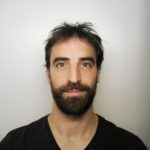Global Biogeochemical Cycles 2019 Jan;33(3):391-419
Predicting responses of plankton to variations in essential nutrients is hampered by limited in situ measurements, a poor understanding of community composition, and the lack of reference gene catalogs for key taxa. Iron is a key driver of plankton dynamics and, therefore, of global biogeochemical cycles and climate. To assess the impact of iron availability on plankton communities, we explored the comprehensive bio‐oceanographic and bio‐omics data sets from Tara Oceans in the context of the iron products from two state‐of‐the‐art global scale biogeochemical models. We obtained novel information about adaptation and acclimation toward iron in a range of phytoplankton, including picocyanobacteria and diatoms, and identified whole subcommunities covarying with iron. Many of the observed global patterns were recapitulated in the Marquesas archipelago, where frequent plankton blooms are believed to be caused by natural iron fertilization, although they are not captured in large‐scale biogeochemical models. This work provides a proof of concept that integrative analyses, spanning from genes to ecosystems and viruses to zooplankton, can disentangle the complexity of plankton communities and can lead to more accurate formulations of resource bioavailability in biogeochemical models, thus improving our understanding of plankton resilience in a changing environment.

